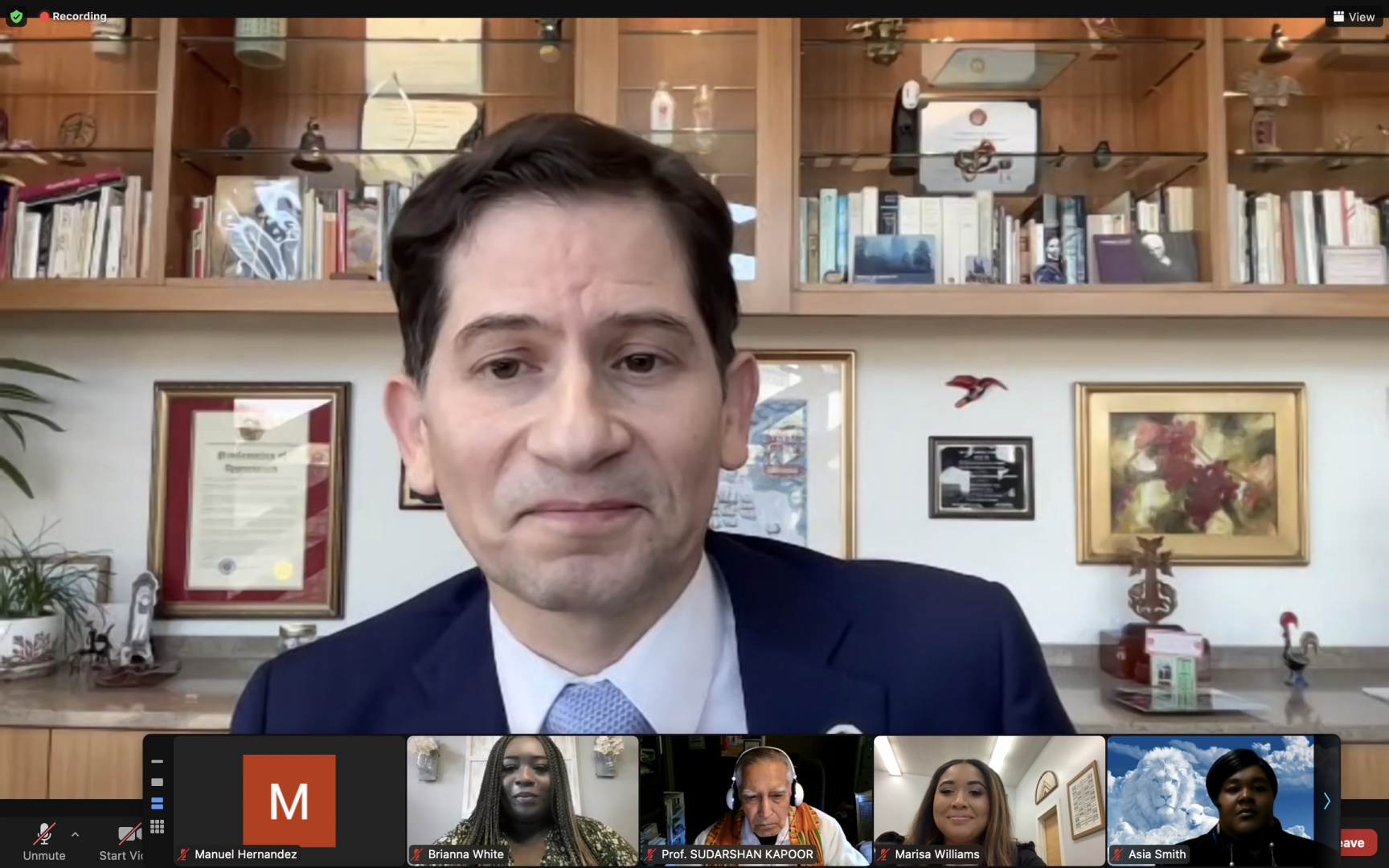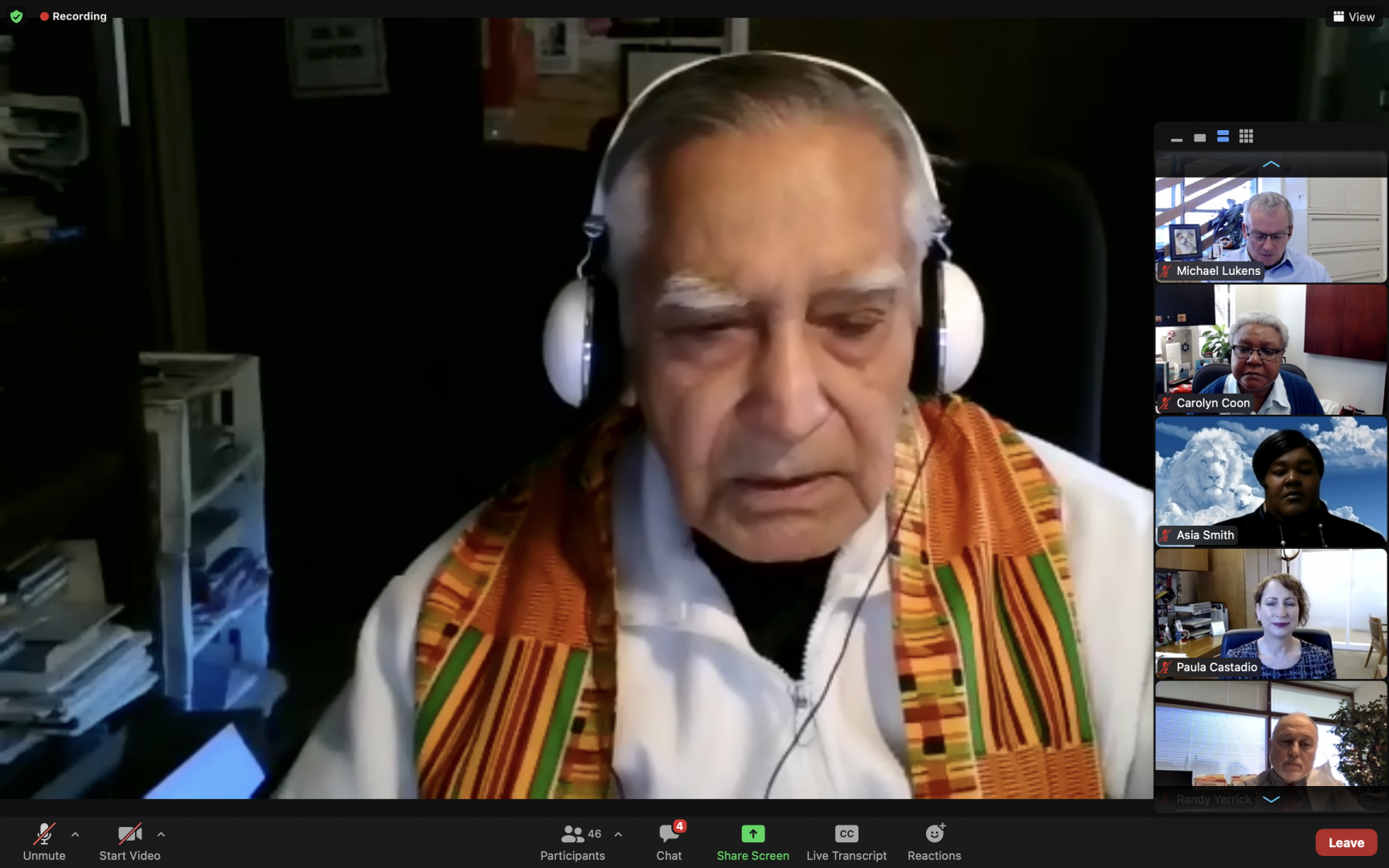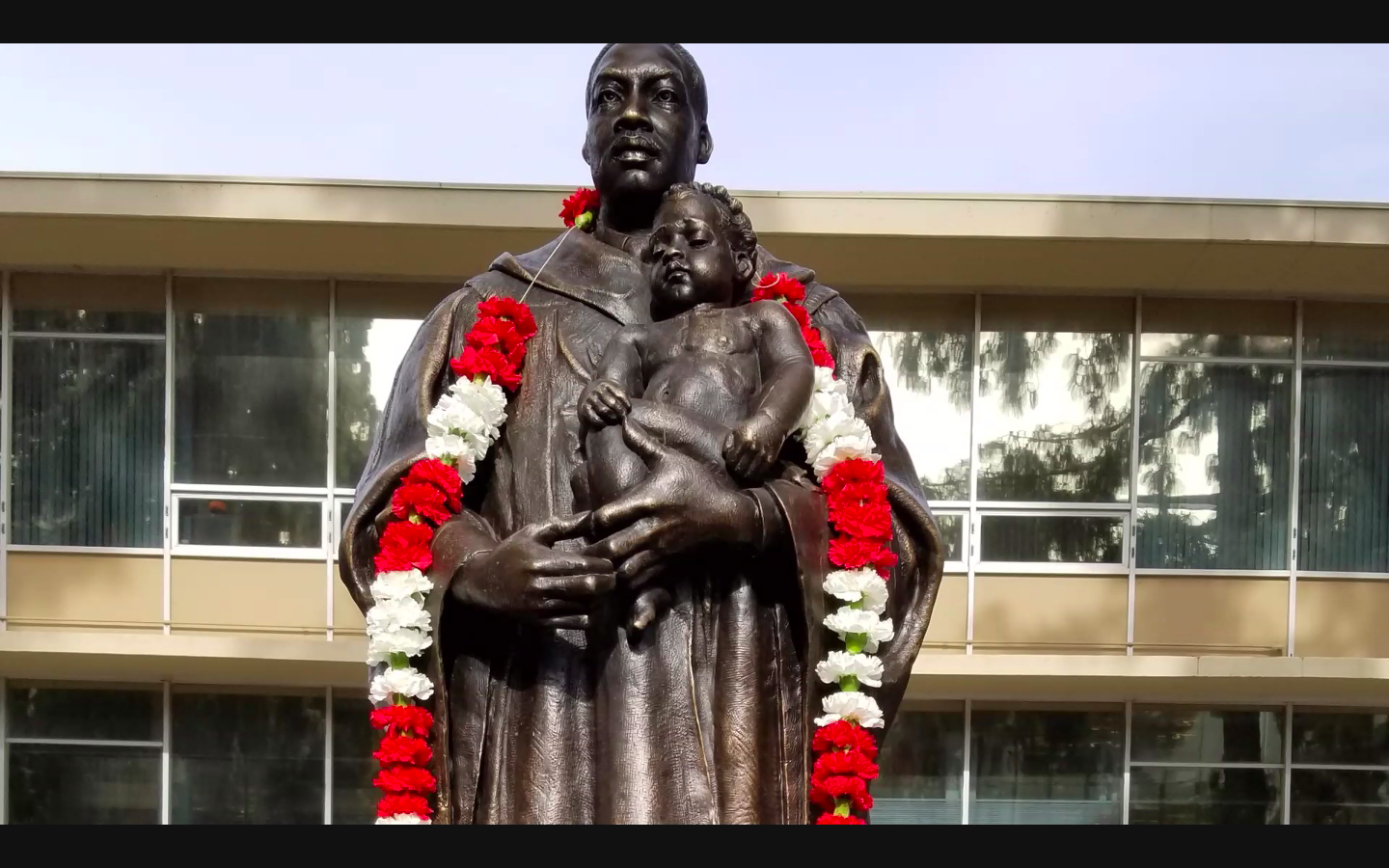President Saúl Jiménez-Sandoval and other keynote speakers addressed racial equity and the impact of voter suppression in current times during the Martin Luther King Jr. commemoration ceremony on Jan. 19.
Fresno State African American Programs and Services held its commemoration ceremony virtually a few days following Martin Luther King Jr. Day on Jan. 17 because of growing concerns regarding the omicron variant.
Several speakers noted the importance of remembering King’s legacy now more than ever.
Throughout the commemoration ceremony were performances from Fresno State’s former gospel choir professor Asia Smith and a poem reading by Fresno State student Diymond Walker.
As the first speaker of the event, Jiménez-Sandoval said that to truly honor King’s legacy, it begins with recognizing what he fought for and how “we must have that difficult conversation about racial equity.”
He spoke about the impacts of Shelby County v. Holder, which “removed voting rights protections afforded by the 1965 Voting Rights Act.” The outcomes of the case led to a flurry of voter intimidation strategies and methods of restricting absentee ballots, according to Jiménez-Sandoval.
The Supreme Court case settled in 2013 concluded two sections of the 1965 Voting Rights were unconstitutional, allowing states to change their election laws and procedures without federal approval.
Additionally, Jiménez-Sandoval said that, even after the efforts of King, in the present day “our democracy, the foundation on which all our freedoms are built, [is] being redefined.”
Jiménez-Sandoval said that the same revisionist history that caused erasures of slavery from school textbooks is happening again “under the guise of critical race theory. These erasures are why Nobel laureate and Pulitzer Prize-winner Toni Morrison is now banned from school libraries.”

Fresno Unified School District Trustee Keshia Thomas was the second keynote speaker and shared how one of King’s strongest quotes on taking action has helped guide her in the fight against voter suppression.
“One of Dr. King’s strongest quotes for me is, ‘Life’s most persistent and urgent question is, ‘What are you doing for others?’’… He gave his life for others and we must continue that hard and endless fight. Voting rights are at the top of all our lists right now and over and over again we continue to fight that battle,” Thomas said.
Thomas said the “Jim Crow relic, the filibuster,” which is a tactic senators of the U.S. Senate can use to prolong debate on a bill to block it from being passed, continues to be protected more than the teachings of King.
Historically, the use of the filibuster allowed southern lawmakers to enforce and create Jim Crow laws and propagate segregation until the creation of the Civil Rights and Voting Rights Act. However, many civil rights activists argue similar tactics continue to be used to cause changes detrimental to different ethnic groups.
“We cannot pretend that the filibuster and blocking voting rights is a part of freedom and peace,” Thomas said.
The Memorial Peace Walk was held two days prior in Washington D.C. on Jan. 17, where the family of King spoke about the importance of removing the filibuster.
King’s relatives spoke in favor of passing the Freedom to Vote: John R. Lewis Act, which is aimed at reviving the Voting Rights Act of 1965 by returning the federal government’s power to oversee state voting laws to prevent different forms of discrimination.
As of Jan. 19, both the John R. Lewis Act and the push to change the filibuster proposed by senate Democrats failed in a vote of 52 opposed and 48 in favor. The proposed change included reducing the number of votes needed to stop a filibuster and limiting its use altogether.
“I feel very disappointed and I feel that it is very unfortunate,” Fresno State professor Sudarshan Kapoor said, responding to the Senate’s decision in an interview with the Collegian. “I feel disgusted.”
Kapoor, who was instrumental in the creation of Fresno State’s Peace Garden that honors Martin Luther King Jr., Mahatma Gandhi, Cesar Chavez and Jane Adams, was the final speaker in the commemoration ceremony.
Kapoor said that the struggles endured by King are what allows people to live their lives today.
“The struggles that he went through and the sacrifices he made are responsible for the kind of life we have today. All of us benefit from Dr. King directly,” Kapoor said.
In his speech, Kapoor said that King would strongly condemn the violence that occurred during the Jan. 6 riots at the capitol and the recent voter rights suppression happening in 19 states.
Kapoor also said he believed King would advocate for the passing of the John R. Lewis Act, and he himself advocated for it before its failure to pass days later.
“We should all stand up today and speak up against those people who are opposing the [John R. Lewis Act],” Kapoor said.

Jiménez-Sandoval told the Collegian in an email that despite Congress’ failure to pass both acts, the university will continue to “educate and prepare tomorrow’s leaders.”
President Jiménez-Sandoval said the Central Valley has had historical impacts on the civil rights movement which have aligned with King’s views, including within Fresno State.
“Fresno State has remained a shining beacon of hope and knowledge in our Valley. Since 1911, Fresno State has been a unique space in which students come to learn… they become empowered and channel their gifts in the service of others,” Jiménez-Sandoval said.
Jiménez-Sandoval added to this by emphasizing the importance of Fresno State events like the Martin Luther King Jr. Day commemoration. He said it allows the community to understand American history so “the wisdom of the past becomes ours, and Dr. King’s vision pulsates with life and guides us.”
“If we study Dr. King’s life and the archive he left behind, we see a clear vision for a more equitable world,” Jiménez-Sandoval said. “One that permeates social and economic spheres in the quest for racial justice.”
With the current discourse surrounding the John R. Lewis Voting Act, Kapoor told the Collegian he’s looking to put together a seminar to discuss Congress’ decision to not pass the act, and possibly hold it in the Fresno State Peace Garden if it is able to be held in-person.
Kapoor aims to provide Fresno State students and young voters with more information through different events such as the aforementioned seminar to help increase voter turnout for future elections.
“Student participation in the election is very important and that made the difference in the previous election to be very honest,” Kapoor said. “I would like [to make] them more aware of their rights and their participation and that [they know] whenever the elections take place,”
Typically a garlanding ceremony is held during the in-person Martin Luther King Jr. Day ceremonies. Kapoor said the purpose of such a ceremony is not only to recognize what King has done but to honor what he sacrificed.
“The 1965 March on Selma, also known as Bloody Sunday, when John Lewis was brutally beaten by a riot squad on the Edmund Pettus Bridge, was for the precise purpose of achieving voting rights,” Jiménez-Sandoval said. “Dr. King marched and died for civil rights, and the freedom to participate in self-governance remains at the core of his vision.”




